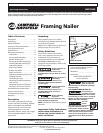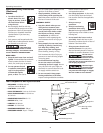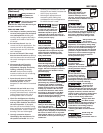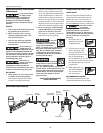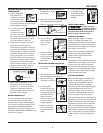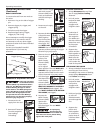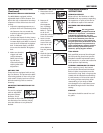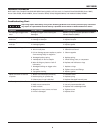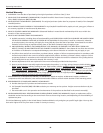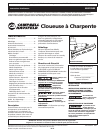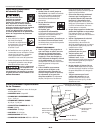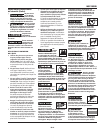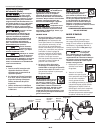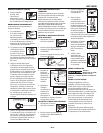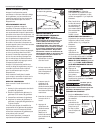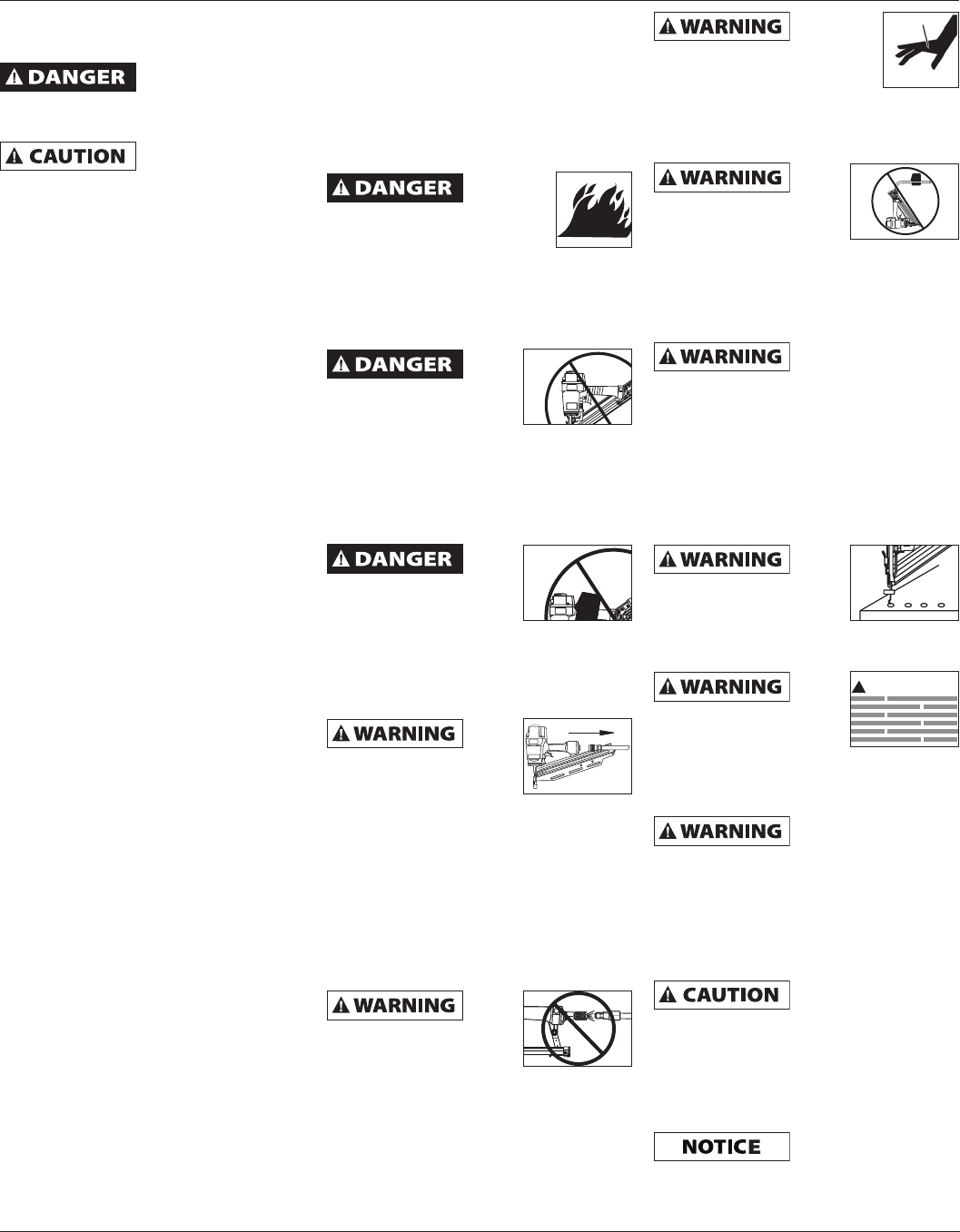
Never place hands or any
other body parts in the
fastener discharge area of
the tool. The tool might eject a fastener
and could result in death or serious
personal injury.
Never carry the tool by
the air hose or pull the
hose to move the tool
or a compressor. Keep hoses away from
heat, oil and sharp edges. Replace any
hose that is damaged, weak or worn.
Personal injury or tool damage could
occur.
Always assume the
tool contains
fasteners. Respect the tool as a working
implement; no horseplay. Always keep
others at a safe distance from the work
area in case of accidental discharge of
fasteners. Do not point the tool toward
yourself or anyone whether it contains
fasteners or not. Accidental triggering
of the tool could result in death or
serious personal injury.
Do not drive a fastener
on top of other
fasteners. The fastener
could glance and cause death or a
serious puncture wound.
Do not operate or allow
anyone else to operate
the tool if any warnings
or warning labels are not legible.
Warnings or warning labels are located
on the tool magazine and body.
Do not drop or
throw the tool.
Dropping or throwing the tool can
result in damage that will make the tool
unusable or unsafe. If the tool has been
dropped or thrown, examine the tool
closely for bent, cracked or broken parts
and air leaks. STOP and repair before
using or serious injury could occur.
Always check that
the Work Contact
Element (WCE) is operating properly. A
fastener could accidentally be driven
if the WCE is not working properly.
Personal injury may occur (See
"Checking the Work Contact Element"
Section).
Avoid using the
tool when the
magazine is empty. Accelerated wear on
the tool may occur.
Always remain in a
firmly balanced
position when using or handling the
tool.
Avoid long extended
periods of work
with the tool. Stop using the tool if you
feel pain in hands or arms.
TOOL USE AND CARE
a. Use clamps or another practical way
to secure and support the workpiece
to a stable platform. Holding the
work by hand or against the body is
unstable and is able to lead to loss
of control.
b. Do not force the tool. Use the
correct tool for the application. The
correct tool will do the job better
and safer at the rate for which the
tool is designed.
c. Do not use the tool if the switch
does not turn the tool on or off. Any
tool that cannot be controlled with
the switch is dangerous and must be
repaired.
d. Disconnect the tool from the
air source before making any
adjustments, changing accessories,
loading, unloading, or storing
the tool. Such preventive safety
measures reduce the risk of starting
the tool unintentionally.
e. Store the tool when it is idle out
of reach of children and other
untrained persons. A tool is
dangerous in the hands of untrained
users.
f. Maintain the tool with care. Keep
a cutting tool sharp and clean. A
properly maintained tool, with sharp
cutting edges reduces the risk of
binding and is easier to control.
g. Check for misalignment or binding
of moving parts, breakage of parts,
and any other condition that affects
the tool’s operation. If damaged,
have the tool serviced before using.
Many accidents are caused by poorly
maintained tools. There is a risk of
bursting if the tool is damaged.
h. Use only accessories that are
identified by the manufacturer for
the specific tool model. Use of an
accessory not intended for use with
the specific tool model, increases the
risk of injury to persons.
i. Selecting an appropriate tool
actuation system, taking into
consideration the work application
for which the tool is used.
Never use
gasoline
or other flammable liquids
to clean the tool. Never use
the tool in the presence of
flammable liquids or gases. Vapors
could ignite by a spark and cause an
explosion which will result in death or
serious personal injury.
Do not remove, tamper
with, or otherwise
cause the Work Contact
Element (WCE) or trigger to become
inoperable. Do not operate any tool
which has been modified in a like
fashion. Death or serious personal
injury could result.
Do not touch the trigger
unless driving fasteners.
Never attach air line to
tool or carry tool while touching the
trigger. The tool could eject a fastener
which will result in death or serious
personal injury.
Always disconnect the
tool from the power
source when unattended,
performing any maintenance or repair,
clearing a jam, loading, unloading,
or moving the tool to a new location.
Always reconnect the air line AFTER
loading any fasteners. Do not load
the tool with fasteners when either
the trigger is depressed or the Work
Contact Element (WCE) is engaged.
The tool could eject a fastener causing
death or serious personal injury.
Always fit tool with a
fitting or hose coupling
on or near the tool in
such a manner that all compressed air
in the tool is discharged at the time the
fitting or hose coupling is disconnected.
Do not use a check valve or any other
fitting which allows air to remain in the
tool. Death or serious personal injury
could occur.
3
NS219500
www.chpower.com
Important Safety Instructions
(Continued)
!
WARNING



